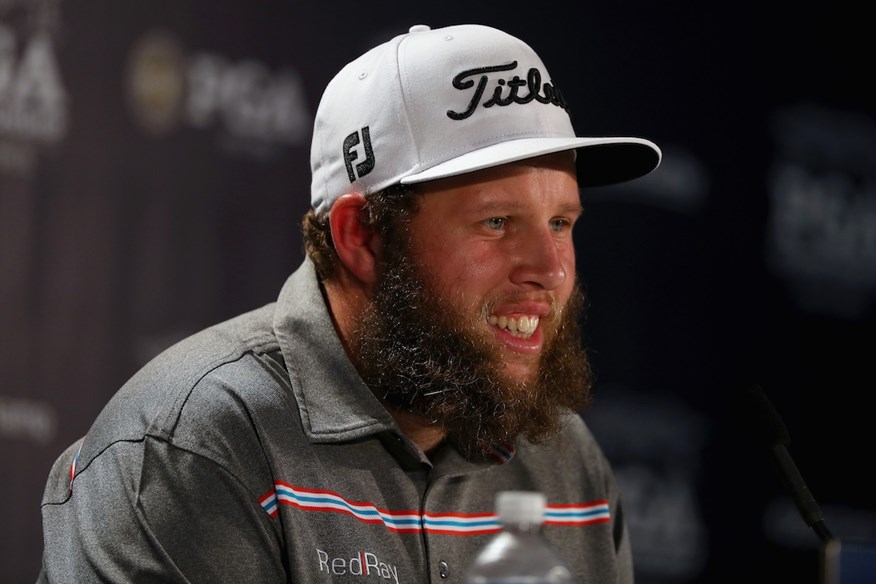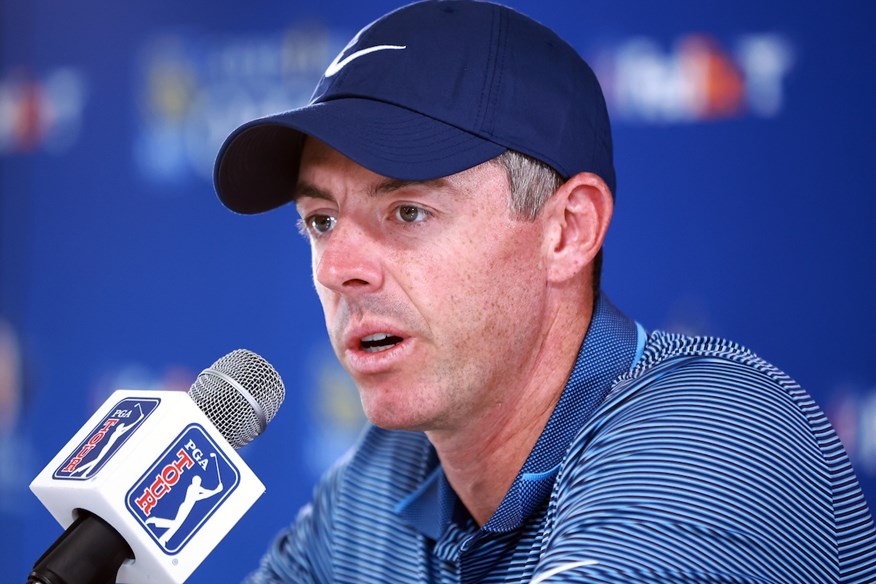Beef: Both sides need to back down in the ongoing battle between golfers and the media
Published:
We all want to hear from players, writes TG columnist Andrew Johnston, but obligations from the golf media cannot be made compulsory. This is why…
Golf’s a brilliant job, and we’re lucky to play it for a living – but we’re still human. We feel pressure, emotions, and sometimes we just need space. When we go quiet, the fans miss out, and that’s something we need to talk about.
Look at Tommy Fleetwood after the Travelers. He came so close, missed out right at the end, and it would have been totally understandable if he’d slipped away without a word. But he didn’t. He stood there, hurting, and gave a raw, emotional interview. You could see it in his eyes – he was angry, disappointed, trying to make sense of it in real time. And that honesty made me respect him even more. There’s no doubt he’ll win out there soon and I can’t wait for the post-round interview.
Real emotion. Real people. Not media-trained robots. That’s what fans want.
But if we’re asking players to speak right after those massive highs or brutal lows, we’ve got to expect a bit of fire or sadness or frustration. That’s just being human. Tommy showed us that – and it made him even more relatable.
This whole topic has bubbled up more this year. Collin Morikawa said earlier in the season that players don’t owe the media anything. Shane Lowry had a tough one at the Masters and then got asked more about Rory McIlroy than his own round. And since that drama around his driver at the PGA Championship, Rory’s taken a big step back from interviews.
I understand both sides. Talking to the media is part of being a professional. It helps fans connect with us, and it gives the sport personality. But I also get why sometimes players just don’t have it in them. Maybe it was a tough round. Maybe they’re struggling off the course. Maybe they just want to get home and see the kids.
That should be OK. If you need a bit of space, or you say, “I’ll speak tomorrow.” That’s fair. We’re not machines.
The issue is when players stop talking altogether – that’s when the fans miss out. And they’re the ones who make this sport what it is. People want to know how we felt during a round, why we played a certain shot, what was said between players, how we handled the nerves. Social media’s great, but it’s all filtered. People want to see the real side of us – warts and all.
Now, we also have to accept that not everything said about us will be positive. That’s the trade-off. If we’re in the spotlight, there will be criticism sometimes. That’s fine – as long as it’s fair and in context. But when certain media twist things or get it flat-out wrong, that’s when players get fed up.
I get why Rory was pissed off about the driver story. That kind of thing happens all the time on Tour – it’s just part of the process. But because it was Rory, it got leaked and turned into a headline. That’s not right.
Even so, I kind of wish he’d addressed it. Maybe just said, “I’m annoyed, and I’m only going to talk golf for now.” That way the golf media and the fans still hear from him, but on his terms. When he went totally quiet, it ended up shutting everyone out – even the ones just trying to do their job fairly.
And let’s be honest: Rory’s carried the weight of this sport for over a decade. Since Tiger Woods, no one’s had that kind of attention or pressure. And for most of that time, he’s been available, open, and brutally honest.
That takes its toll.

I’ve had just a little glimpse of that – back when I was getting loads of attention, media requests, sponsors pulling me in every direction. Trying to juggle all of that with playing every week? It was hard. Really hard. It was only when I stepped away for a bit that I realised how much it had drained me.
Rory won the Masters this year. A career-defining moment. Imagine the emotion, the relief, the energy that took. And within two weeks, he’s back on the road, back in the spotlight, and expected to carry on like nothing happened.
If you spent your life building up a business and someone bought it off you for millions – you’d take a year off, easy. Reflect, enjoy it, take stock. No one would expect you back at your desk after a fortnight.
So if Rory, or any of us, needs a bit of time or doesn’t feel up for talking straight away, that should be respected. Especially when you just want to get away after a round, head home, and spend time with your kids or family. That stuff matters more than any soundbite.
Still, I don’t think making media stuff compulsory or fining players is the answer. That just builds resentment. If someone is skipping every interview, refusing all requests, and it’s affecting coverage or rankings, then maybe there’s a conversation to have. But for most players, we know the expectations. We know our responsibilities.
Most of the time, a quick explanation is all it takes. Say, “I just need 20 minutes to cool down,” or “I’ve got to head off – I’ll chat tomorrow.” That honesty goes a long way.
What we really need to watch out for are those moments when media try to bait players or chase headlines. Like when a tournament’s hosted at a Donald Trump course – suddenly the questions go political. I’m there to hit golf shots, not comment on world leaders. I didn’t pick the course.
That happened to me on a US chat show. They kept pressing me to talk politics, and I had to just say, “I don’t live here. Why are you asking me?” I wasn’t going to become a headline over something I wasn’t qualified to talk about.
Even silence gets twisted sometimes – suddenly you’re accused of hiding something. You can’t win.
In the end, we just need balance.
Players should work with the media when we can. We should keep being honest, showing the highs and lows and answering the sensible questions. And media should give us space when it’s needed or politely requested (as long as it’s not every day).
Ultimately, it’s the fans who matter most. They want to connect, and they deserve the real story – not just the filtered highlights.
So yeah, let’s keep talking. But let’s do it with understanding and respect both ways.


